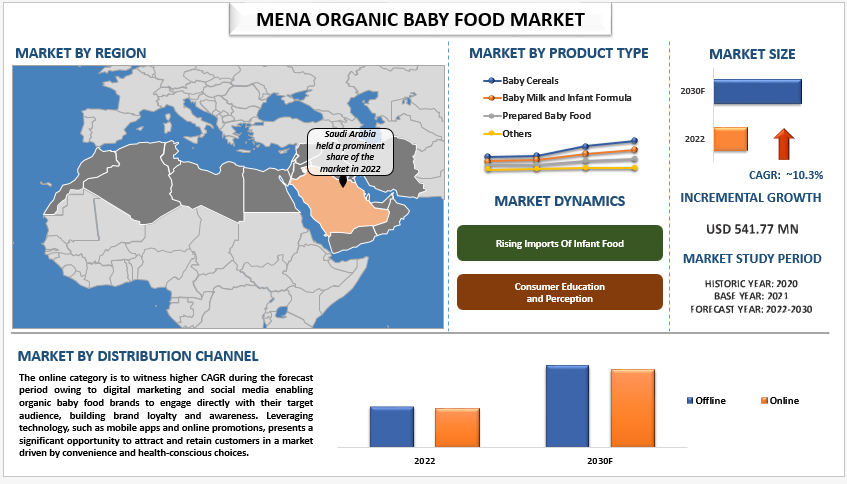In 2022, the MENA Organic Baby Food Market bloomed, boasting a valuation of USD 541.77 million, and it shows no signs of slowing down, projected to surge at an impressive CAGR of 10.3% from 2023 to 2030. The driving force behind this growth is the escalating awareness among parents regarding the paramount importance of providing their little ones with wholesome and organic nourishment.
Access Sample PDF Here- https://univdatos.com/get-a-free-sample-form-php/?product_id=47445
Key Market Dynamics:
- Changing Parental Dynamics: The shift in parental roles, with approximately 44.3% of women working in the private sector, is reshaping feeding habits. The demand for ready-to-eat organic baby food has surged, driven by the time constraints faced by working mothers in the UAE. This trend has significantly contributed to the market’s upward trajectory.
- Convenience is Key: The decision to opt for ready-to-eat baby food is not just about time; it reflects a conscious choice by parents to move away from exclusive breastfeeding. The convenience of organic baby food aligns with the evolving lifestyle of modern parents, propelling the market further.
- Market Accessibility: The increasing availability of organic baby food in local supermarkets and through online retailers is a game-changer. Parents now have easier access to these products, further fueling the adoption of organic options for their babies.
Major Players and Market Strategies:
Leading the charge in this market evolution are major players such as Arla Foods, Nestlé, Abbott, and Danone. These companies have not only introduced innovative organic products but have also engaged in strategic mergers and partnerships, ensuring a continuous stream of hi-tech and innovative offerings to cater to the discerning needs of modern parents.
Insights and Forecasts:
- Dominance of Baby Milk and Infant Formula: The baby milk and infant formula category is expected to dominate the market, driven by changing consumer preferences and a surge in the introduction of new organic products with diverse flavors.
- Distribution Channels: While online platforms are gaining traction, the offline category, particularly hypermarkets and supermarkets, remains the dominant distribution channel. Buyers prefer these channels for their ability to physically assess product quality, and the well-established distribution networks further contribute to their sustained dominance.
- UAE’s Leading Role: The United Arab Emirates (UAE) emerges as the frontrunner, set to experience the fastest CAGR. Factors such as increasing awareness, rising disposable incomes, and a preference for premium-quality products position the UAE as a thriving hub for organic baby food.
In conclusion, MENA’s Organic Baby Food Market isn’t just witnessing growth; it’s nurturing a healthier future for the region’s youngest members, driven by evolving parental dynamics and a steadfast commitment to providing the best for the next generation.


